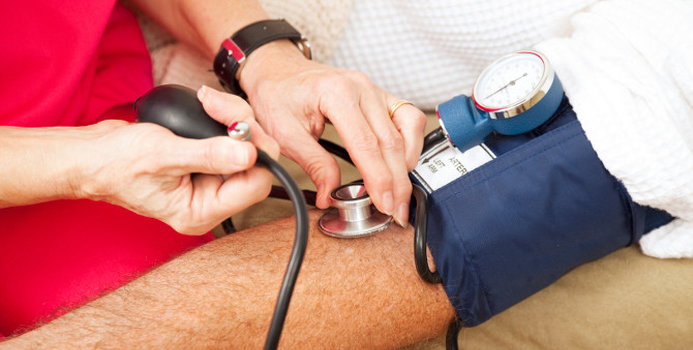Sodium is crucial to your health, as your body needs it to carry out normal bodily functions. Salt is responsible for balancing the amount of fluids in your body and ensuring your muscles contract the way they should. Sodium is also needed to assist with nerve functions. Therefore, you need to ingest salt on a daily basis, but you also need to know how much to consume, as a sodium overdose could be hazardous to your health. Your body needs at least 500 mg of salt a day, and you shouldn't exceed 2,300 mg a day if you're a healthy adult. However, if you suffer from high blood pressure, diabetes or kidney disease, the maximum daily consumption of sodium lowers to 1,500 mg a day.
Here are some signs that you're ingesting too much sodium:
1. Extreme Thirst
A common sign of excess sodium intake is extreme thirst--and you've probably noticed that you get thirsty after eating salty foods. If you wake up thirsty in the middle of the night or in the morning, it could mean you ingested too much salt the previous day. Keep note of this sign; if it becomes habitual, it means you need to alter your diet before this excess salt consumption negatively impacts your health.
2. Bloated Feeling
After consuming too much salt, you're likely to feel bloated and uncomfortable. Sodium is a mineral that naturally retains water, and a side effect of this water retention is a bloated sensation. This is also a sign to be aware of, as a constant bloated feeling could mean you're eating too much salt.
3. High Blood Pressure
One of the main (and most threatening) signs of excess sodium in the body is high blood pressure, and this could put you at risk for heart disease and stroke, amongst other ailments. When your kidneys can't get rid of excess sodium, it is put into your blood stream. When this happens, your blood volume increases since sodium magnetizes and retains water. This not only raises your blood pressure, but it forces your heart to work even harder to pump blood through your vessels, placing strain on your arteries and other organs.
4. Osteoporosis
Another dangerous effect of ingesting too much sodium is the risk of developing osteoporosis. If your bones are already becoming weak and brittle, it could be an indication that you're consuming too much salt. This is because sodium decreases your bone density, which causes them to lose strength. Sodium also interferes with your body's ability to absorb calcium--the nutrient which is crucial for building and maintaining bone health. Therefore, you should cut back on sodium now to ensure strong bones in the future and to decrease your risk of osteoporosis.
In order to keep your sodium intake at bay, cook your meals at home whenever possible and steer clear of fast food, processed food, and other foods that have high sodium levels. Also, drink an abundance of water every day to flush the excess sodium out of your system.



